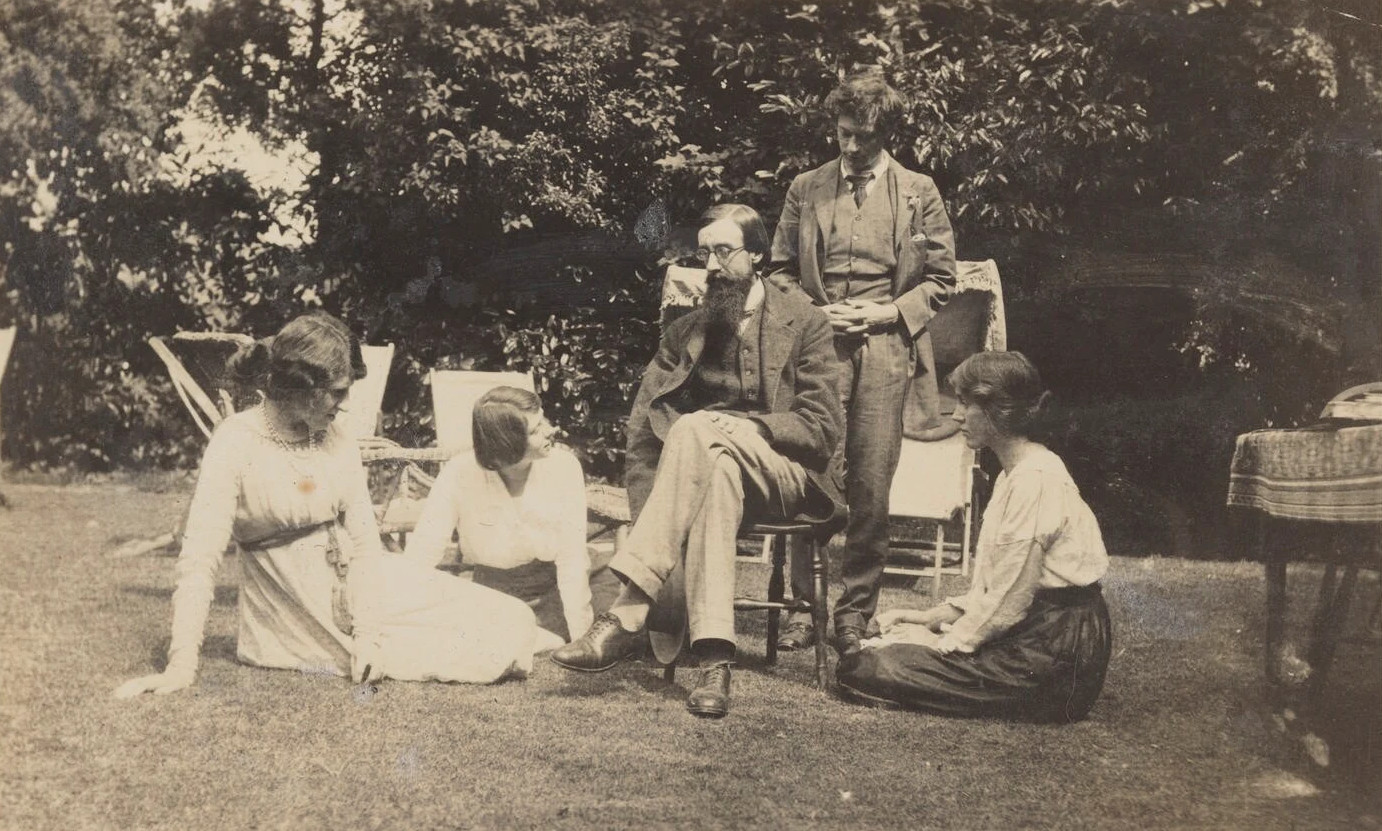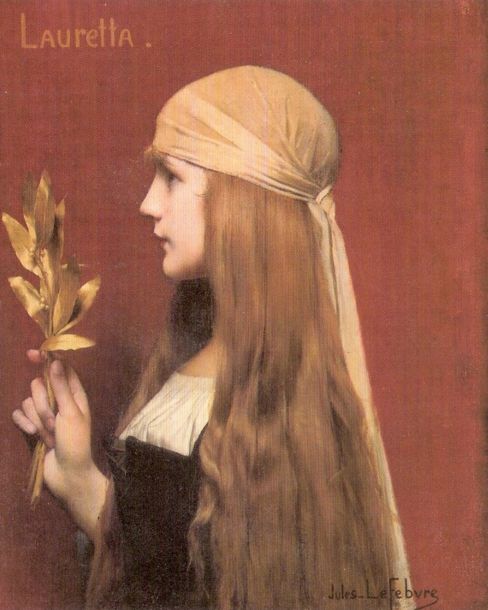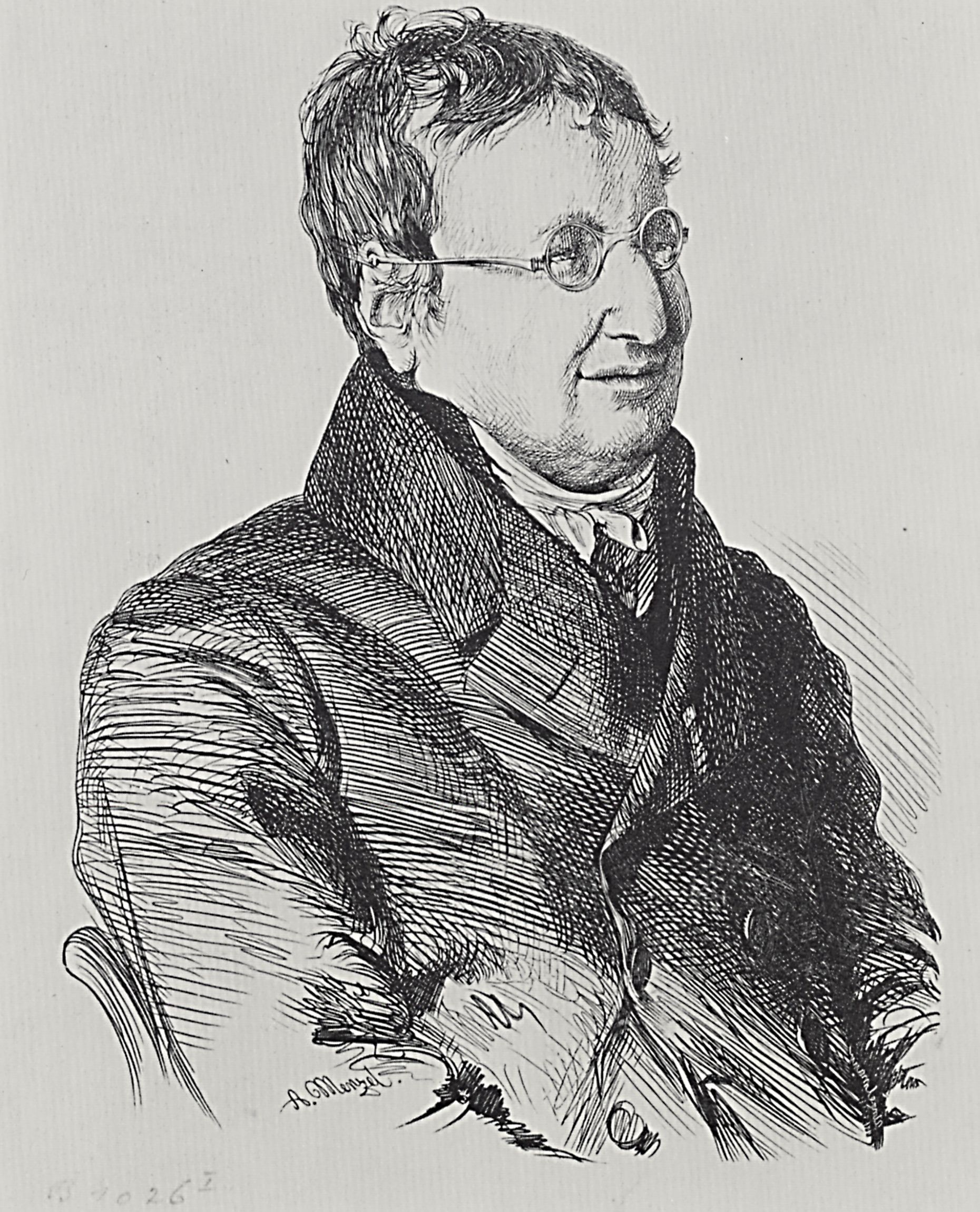|
The Serapion Brethren
The Serapion Brethren (''Die Serapionsbrüder'') is the name of a literary and social circle, formed in Berlin in 1818 by the German romantic writer E. T. A. Hoffmann and several of his friends. The Serapion Brethren also is the title of a four-volume collection of Hoffmann's novellas and fairytales that appeared in 1819, 1820, and 1821. The literary circle Seraphin Brethren In 1814, Hoffmann returned to Berlin from Dresden and Leipzig, where he had been working as an orchestra conductor and opera director, to return to work as a Prussian civil servant. In that year, he and a group of friends formed an association for the purpose of reading from and discussing works of literature (primarily their own). The group first met on October 12, which happened to be the feast day of Saint Seraphin of Montegranaro. The friends therefore decided to refer to their group as an “order” and to give it the name The Seraphin Brethren 'Die Seraphinenbrüder'' After about two years of gathe ... [...More Info...] [...Related Items...] OR: [Wikipedia] [Google] [Baidu] |
Berlin
Berlin ( , ) is the capital and largest city of Germany by both area and population. Its 3.7 million inhabitants make it the European Union's most populous city, according to population within city limits. One of Germany's sixteen constituent states, Berlin is surrounded by the State of Brandenburg and contiguous with Potsdam, Brandenburg's capital. Berlin's urban area, which has a population of around 4.5 million, is the second most populous urban area in Germany after the Ruhr. The Berlin-Brandenburg capital region has around 6.2 million inhabitants and is Germany's third-largest metropolitan region after the Rhine-Ruhr and Rhine-Main regions. Berlin straddles the banks of the Spree, which flows into the Havel (a tributary of the Elbe) in the western borough of Spandau. Among the city's main topographical features are the many lakes in the western and southeastern boroughs formed by the Spree, Havel and Dahme, the largest of which is Lake Müggelsee. Due to its l ... [...More Info...] [...Related Items...] OR: [Wikipedia] [Google] [Baidu] |
Friedrich De La Motte Fouqué
Friedrich Heinrich Karl de la Motte, Baron Fouqué (); (12 February 1777 – 23 January 1843) was a German writer of the Romantic style. Biography He was born at Brandenburg an der Havel, of a family of French Huguenot origin, as evidenced in his family name. His grandfather, Heinrich August de la Motte Fouqué, had been one of Frederick the Great's generals and his father was a Prussian officer. Although not originally intended for a military career, Friedrich de la Motte Fouqué ultimately gave up his university studies at Halle to join the army, and he took part in the Rhine campaign of 1794. The rest of his life was devoted mainly to literary pursuits. He was introduced to August Wilhelm Schlegel, who deeply influenced him as a poet ("mich gelehret Maß und Regel , Meister August Wilhelm Schlegel") and who published Fouqué's first book, ''Dramatische Spiele von Pellegrin'', in 1804. Marriage Fouqué's first marriage was unhappy and soon ended in divorce. His second wife ... [...More Info...] [...Related Items...] OR: [Wikipedia] [Google] [Baidu] |
Literary Circles
A literary circle is a small group of students who gather together to discuss a piece of literature in depth. Famous or noteworthy examples include: * The Socrates School * The Bloomsbury Group * The Dymock Poets * The Algonquin Roundtable * The Inklings * Stratford-on-Odéon * The Factory * The El Floridita literary circle, which included Ernest Hemingway * The Mutual Admiration Society * The Whitechapel Boys * The Streatham Worthies * The Budh Sabha See also * Literary society A literary society is a group of people interested in literature. In the modern sense, this refers to a society that wants to promote one genre of writing or a specific author. Modern literary societies typically promote research, publish newsle ... References External links {{sisterlinks, d=Q105200145 Literary circles Literary societies ... [...More Info...] [...Related Items...] OR: [Wikipedia] [Google] [Baidu] |
Literary Societies
A literary society is a group of people interested in literature. In the modern sense, this refers to a society that wants to promote one genre of writing or a specific author. Modern literary societies typically promote research, publish newsletters, and hold meetings where findings can be presented and discussed. Some are more academic and scholarly, while others are more social groups of amateurs who appreciate a chance to discuss their favourite writer with other hobbyists. Historically, "literary society" has also referred to salons such as those of Madame de Stael, Madame Geoffrin and Madame de Tencin in Ancien Regime France. Another meaning was of college literary societies, student groups specific to the United States. The oldest formal societies for writing and promoting poetry are the chambers of rhetoric in the Low Countries, which date back to the Middle Ages. 19th century literary societies Modern examples of literary societies include: * In France, Parnassian p ... [...More Info...] [...Related Items...] OR: [Wikipedia] [Google] [Baidu] |
German Literature
German literature () comprises those literature, literary texts written in the German language. This includes literature written in Germany, Austria, the German parts of Switzerland and Belgium, Liechtenstein, Luxembourg, South Tyrol in Italy and to a lesser extent works of the German diaspora. German literature of the modern period is mostly in Standard German, but there are some currents of literature influenced to a greater or lesser degree by German dialects, dialects (e.g. Alemannic literature, Alemannic). Medieval German literature is literature written in Germany, stretching from the Carolingian dynasty; various dates have been given for the end of the German literary Middle Ages, the Protestant Reformation, Reformation (1517) being the last possible cut-off point. The Old High German period is reckoned to run until about the mid-11th century; the most famous works are the ''Hildebrandslied'' and a heroic epic known as the ''Heliand''. Middle High German starts in the 12t ... [...More Info...] [...Related Items...] OR: [Wikipedia] [Google] [Baidu] |
The Decameron
''The Decameron'' (; it, label=Italian, Decameron or ''Decamerone'' ), subtitled ''Prince Galehaut'' (Old it, Prencipe Galeotto, links=no ) and sometimes nicknamed ''l'Umana commedia'' ("the Human comedy", as it was Boccaccio that dubbed Dante Alighieri's ''Comedy'' "''Divine''"), is a collection of short stories by the 14th-century Italian author Giovanni Boccaccio (1313–1375). The book is structured as a frame story containing 100 tales told by a group of seven young women and three young men; they shelter in a secluded villa just outside Florence in order to escape the Black Death, which was afflicting the city. Boccaccio probably conceived of the ''Decameron'' after the epidemic of 1348, and completed it by 1353. The various tales of love in ''The Decameron'' range from the erotic to the tragic. Tales of wit, practical jokes, and life lessons contribute to the mosaic. In addition to its literary value and widespread influence (for example on Chaucer's ''Canterbury Ta ... [...More Info...] [...Related Items...] OR: [Wikipedia] [Google] [Baidu] |
Giovanni Boccaccio
Giovanni Boccaccio (, , ; 16 June 1313 – 21 December 1375) was an Italian writer, poet, correspondent of Petrarch, and an important Renaissance humanist. Born in the town of Certaldo, he became so well known as a writer that he was sometimes simply known as "the Certaldese" and one of the most important figures in the European literary panorama of the fourteenth century. Some scholars (including Vittore Branca) define him as the greatest European prose writer of his time, a versatile writer who amalgamated different literary trends and genres, making them converge in original works, thanks to a creative activity exercised under the banner of experimentalism. His most notable works are ''The Decameron'', a collection of short stories which in the following centuries was a determining element for the Italian literary tradition, especially after Pietro Bembo elevated the Boccaccian style to a model of Italian prose in the sixteenth century, and ''On Famous Women''. He wrot ... [...More Info...] [...Related Items...] OR: [Wikipedia] [Google] [Baidu] |
Ludwig Tieck
Johann Ludwig Tieck (; ; 31 May 177328 April 1853) was a German poet, fiction writer, translator, and critic. He was one of the founding fathers of the Romantic movement in the late 18th and early 19th centuries. Early life Tieck was born in Berlin, the son of a rope-maker. His siblings were the sculptor Christian Friedrich Tieck and the poet Sophie Tieck. He was educated at the , where he learned Greek and Latin, as required in most preparatory schools. He also began learning Italian at a very young age, from a grenadier with whom he became acquainted. Through this friendship, Tieck was given a first-hand look at the poor, which could be linked to his work as a Romanticist. He later attended the universities of Halle, Göttingen, and Erlangen. At Göttingen, he studied Shakespeare and Elizabethan drama. On returning to Berlin in 1794, Tieck attempted to make a living by writing. He contributed a number of short stories (1795–98) to the series ''Straussfedern'', published ... [...More Info...] [...Related Items...] OR: [Wikipedia] [Google] [Baidu] |
David Ferdinand Koreff
David Ferdinand Koreff (1 February 1783 – 15 May 1851) was a German physician who was a personal doctor of Staatskanzler Karl August von Hardenberg and occupied one of the two chairs for animal magnetism created in 1817 at the University of Berlin. A personal friend of E.T.A. Hoffmann and a member of his literary club The Serapion Brethren (Serapionsbrüder), Koreff authored a treatise “Über die Erscheinungen des Lebens und über die Gesetze, nach denen es im menschlichen Organismus sich offenbart” and a volume of lyric poetry "Lyrische Gedichte" (published in Paris in 1815). A year after Hoffmann's death in 1822, Koreff moved to Paris to become the most celebrated authority on animal magnetism for the French literary world. His connections included Victor Hugo, Alexandre Dumas, père, Musset, Mérimée, Chateaubriand, Balzac, Stendhal, Benjamin Constant and Heinrich Heine Christian Johann Heinrich Heine (; born Harry Heine; 13 December 1797 – 17 February 1856) was ... [...More Info...] [...Related Items...] OR: [Wikipedia] [Google] [Baidu] |
Julius Eduard Hitzig
Julius Eduard Hitzig (born ''Isaac Elias Itzig''; 26 March 1780 in Berlin – 26 November 1849 in Berlin) was a German author and civil servant. Born into the wealthy and influential Jewish Itzig family, he was between 1799 and 1806 a Prussian civil servant, became Criminal Counsel at the Berlin Supreme Court in 1815 and its director in 1825. In 1808 he established a publishing house and later a bookstore. Hitzig was much involved in the Berlin literary life of his period, notably in connection with the salon of Rahel Varnhagen. He was friendly with E.T.A. Hoffmann, August von Kotzebue, Adelbert von Chamisso, Friedrich de la Motte Fouqué and Willibald Alexis. He was lampooned for his name change by Heinrich Heine. His works include ''"Der Neue Pitaval"'' (several volumes). See also *Itzig family Many of the thirteen children of Daniel Itzig and Miriam Wulff, and their descendants and spouses, had significant impact on both Jewish and German social and cultural (especially m ... [...More Info...] [...Related Items...] OR: [Wikipedia] [Google] [Baidu] |
ETA Hoffmann
Ernst Theodor Amadeus Hoffmann (born Ernst Theodor Wilhelm Hoffmann; 24 January 1776 – 25 June 1822) was a German Romantic author of fantasy and Gothic horror, a jurist, composer, music critic and artist. Penrith Goff, "E.T.A. Hoffmann" in E. F. Bleiler, ''Supernatural Fiction Writers: Fantasy and Horror''. New York: Scribner's, 1985. pp. 111–120. His stories form the basis of Jacques Offenbach's opera ''The Tales of Hoffmann'', in which Hoffmann appears (heavily fictionalized) as the hero. He is also the author of the novella ''The Nutcracker and the Mouse King'', on which Pyotr Ilyich Tchaikovsky's ballet ''The Nutcracker'' is based. The ballet ''Coppélia'' is based on two other stories that Hoffmann wrote, while Robert Schumann, Schumann's ''Kreisleriana'' is based on Hoffmann's character Johannes Kreisler. Hoffmann's stories highly influenced 19th-century literature, and he is one of the major authors of the Romantic movement. Life Youth Hoffmann's ancestors, both m ... [...More Info...] [...Related Items...] OR: [Wikipedia] [Google] [Baidu] |
Theodor Gottlieb Von Hippel The Younger
Theodor Gottlieb Hippel, from 1790 von Hippel (13 December 1775, in Gerdauen Zheleznodorozhny">Zheleznodorozhny, Kaliningrad Oblast">Zheleznodorozhny– 10 June 1843, in Bromberg) was a Prussian statesman, the friend of E. T. A. Hoffmann, and the author of Frederick William III's proclamation ''An Mein Volk'' (1813). He belonged to the circle of Prussian reformers, and supported many liberal policies, including bilingual education in Silesia. Life Hippel was the son of Gotthard Friedrich Hippel (1743–1809), a pastor, and Henriette Stogler (1750–1779). After his mother's death the boy was sent to the '' Burgschule'' at Königsberg, and remained in the care of his uncle, the satirist Theodor Gottlieb von Hippel the Elder. In 1790 the family was ennobled. On finishing school, Hippel studied law at the Albertina in Königsberg. At the age of nineteen, he was ''Auskultator'', at twenty an articled clerk (''Referendar''), and at twenty-four King's Counsel (''Justizrat'') at Ma ... [...More Info...] [...Related Items...] OR: [Wikipedia] [Google] [Baidu] |





_School_-_Boccaccio_(1313–1375)_(Giovanni_Boccaccio)_-_355512_-_National_Trust.jpg)


